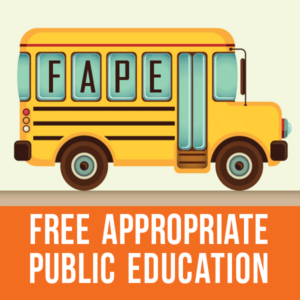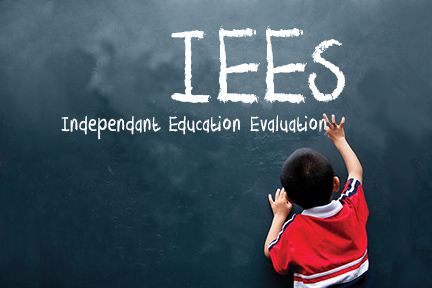Using Special Education Funding to Help Your Child
Adapted with permission from Jean Murrell Adams, Esq.
Free means FREE. For over 40 years, special education laws have guaranteed qualified children with disabilities a free, appropriate, public education (FAPE). Free means free! Special education and related services must be provided without charge. Prior to the disability laws passed in the 1970s, millions of children with special needs were excluded from public schools. Our current laws are meant to ensure that all children have free access to public schools, including charter schools. School districts must also pay for related services that include transportation and developmental, corrective, and other supportive services necessary to assist a child with a disability to benefit from special education.
Where does the money come from? Actually, it comes from you. Your tax dollars pay for special education as part of a combination of federal, state local funding. In California for example, approximately 48 billion each year is earmarked for special education. Another 1 billion is funded by the federal government, and the balance comes from local taxes.
What’s covered? Special education law is intentionally broad and inclusive regarding the education, services and supports that school districts must provide for free. That’s important because among other things, special education needs vary from one child to another and can change from year to year. Here is just a small sampling of free educational and related services:
– Assessments and Evaluations
Private testing in areas such as academics, learning disabilities, or mental health can cost hundreds or even thousands of dollars. However, parents are generally entitled to a free educational evaluation (IEE) if they disagree with a school district assessment. This free “second opinion” is an important right as it helps determine a child’s unique needs, and it must be considered by the school district. You must send a written request for an IEE to the school district (currently to the Director of Psychological Services). The school district must respond within a few weeks to notify you that they will pay for the IEE or if they will pursue a due process hearing.
– Educational Therapy and Tutoring
Teachers often recommend that parents hire a tutor to help their child. If your child requires specialized tutoring in order to make meaningful educational progress, the school district must provide it or pay for it. Request appropriate testing to determine the focus, frequency and duration appropriate for your child. Then take your request to the IEP team. Keep in mind that special education law does not require schools to maximize your child’s potential with the “best” services, but services and supports must be “appropriate in light of the child’s circumstances.”
– Speech and Language Services
Many parents struggle to find speech therapy, social skills groups, and communication-related hardware and software for their child. They often use private insurance, dip into savings to turn to relatives to pay for these programs. But services like speech, health, physical therapy, counseling, ABA therapy, transportation, parent training, etc. that assist a child with a disability to benefit from special education are free. Ask the experts to guide you on what related services are appropriate for your child, and insist that they be designated in the IEP.
– 1:1 Trained Aide
Some children require the assistance of an aide or paraprofessional at school or on the bus in order to access their education and participate in an inclusive environment. Parents could be asked to sit with their child in the classroom or accompany her on field trips. While volunteering is great, it should never be a substitute for a fully-trained 1:1 aide at district expense. Keep a log of your child’s behaviors or other unique needs that require 1:1 assistance. If appropriate, ask for a functional behavioral assessment from the school district to determine the type and level of a 1:1 aide service for your child.
– Legal Fees
Even the best laws are useless if there is no way to enforce them. Special education law provides for “fee-shifting” in order to give all parents access to free legal help. Essentially, if parents are successful in challenging school districts and charter schools in special education cases, then reasonable legal fees must be reimbursed. Have your case reviewed by legal folks before you take any action to ensure you are on the right track.
Categories:Uncategorized
10 Likes





